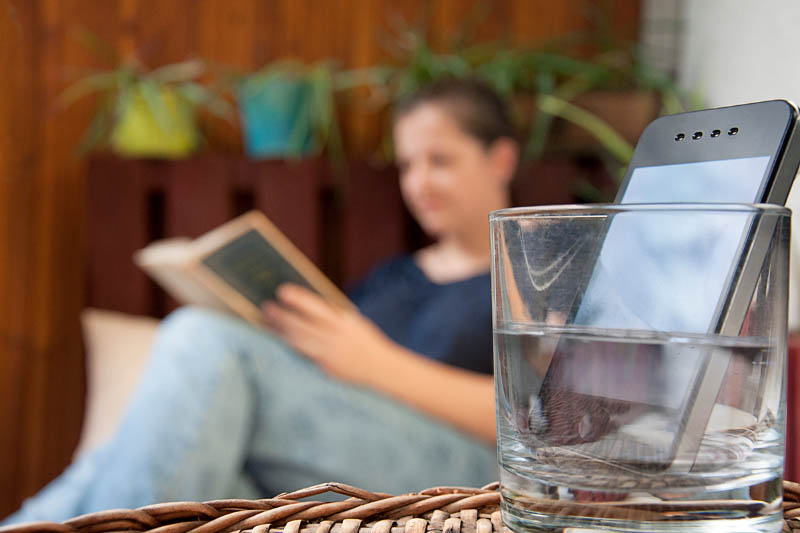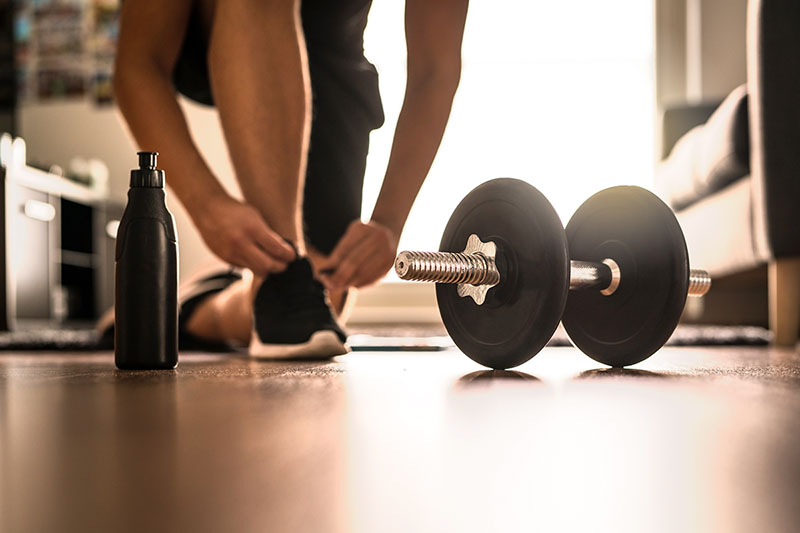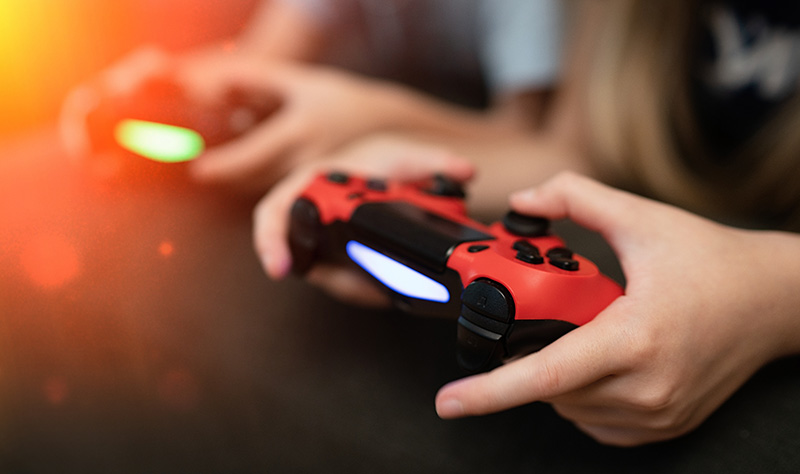5 Tips on How to Do an Effective Digital Detox
If your eyes are strained and you need a break from screens, here are tips to effectively digitally detox—and some benefits they bring.

Headaches, stiff backs, and cramping fingers and hands are all signs that you may need to spend less time at the computer. But some of the more subtle, long-term effects of too much screen time are more sinister. Digital eye strain and retina damage, depression, and anxiety are also associated with being constantly on a device like a computer, tablet, and phone.
Like the rest of your body, the eyes and brain require care. Just as you should take frequent breaks at work to stretch your body, your eyes deserve a break from the blue light emitted from your devices, and your brain needs downtime to reset and refocus.
If you need a digital detox, here’s how to do it—and some of the benefits you could experience.
Schedule time away from screens
Taking time away from screens is especially beneficial in the morning and at night, because the intense blue light from electronic screens can interfere with sleep cycles. If you can't get away from your screens entirely, consider scheduling them to shift into "night mode" in the mornings and evenings to reduce eye strain and help you sleep better.
One study found a connection between nighttime tech use and increased body mass index (BMI). Another study correlated using social media in bed with anxiety and insomnia.
If you set aside early morning and evening as no-phone times, your body has a chance to adjust and make the transition more peaceful. When you start to digitally detox, your body is better at releasing melatonin, and you can better regulate your sleep cycles.
Related: 5 Ways to Reduce Screen Time and Be More Engaged
Start small
You don’t have to go off the grid and quit all your electronics cold-turkey. You can just start with an hour at a time or so without using your phone or placing your computer or tablet in another room.
Maybe your first baby step is as simple as turning off notifications. Notifications are designed to catch your attention and suck you into the digital world.
If you feel like you are missing out on real-time happenings online, you’re less likely to set down the phone. Whatever your first step is, it’s heading in the right direction.
Focus on stretching, especially the areas that are affected by technology
Bending down and touching your toes can help loosen muscles in your lower back and hamstrings that may be tight from sitting for too long. Roll your shoulders and gently stretch your neck from side to side—this can bring relief if you’ve been hunched over or leaning too close to your screen.
Most importantly, however, be sure to stretch out your hands. Your fingers, thumbs, and wrists are all used constantly when you’re online.
Here is a list of hand exercises you can do every day to avoid carpal tunnel syndrome and other hand stiffness problems.
Related: Simple Hand Exercises You Can Do Every Day to Avoid Carpal Tunnel Syndrome
Only use technology in certain places
You’re probably used to carrying your phone with you 24/7. But in addition to setting aside time without screens, you may also want to limit where you use them.
An article published in Environment and Behavior found that the mere presence of a phone can affect people’s behavior. In a phenomenon the researchers called “the iPhone effect,” people showed less empathy and poorer conversation quality when a mobile device was present and visible nearby.
Even if no one was actively using the device, the device’s presence affected everyone in the room. To eliminate distractions, your digital detox could include only using your phone or computer in certain rooms. That way, you have “safe zones” where you can enjoy peace without digital disruption.
Think about the reasons behind your digital consumption
If the reason you’re online too much is work-related and you’re exhausted from your job duties bleeding into your everyday life, maybe you need to do an activity to relax.
If your purpose online is because you are bored or lonely, maybe this is a good chance for your digital detox to involve volunteering in the community or connecting with a friend in person. Think about WHY you’re using your computer or phone so much, and that may help you plan a more effective digital detox.
As you digitally detox, you may experience both physical and mental benefits. You may notice an improved ability to focus, a better mood, and ability to sleep soundly.
Now that you won’t be sitting in front of your laptop as much, you may also have fewer headaches because your eyes won’t be as strained. The tips in this article can help you plan a strategic and relaxing break from the online world.







